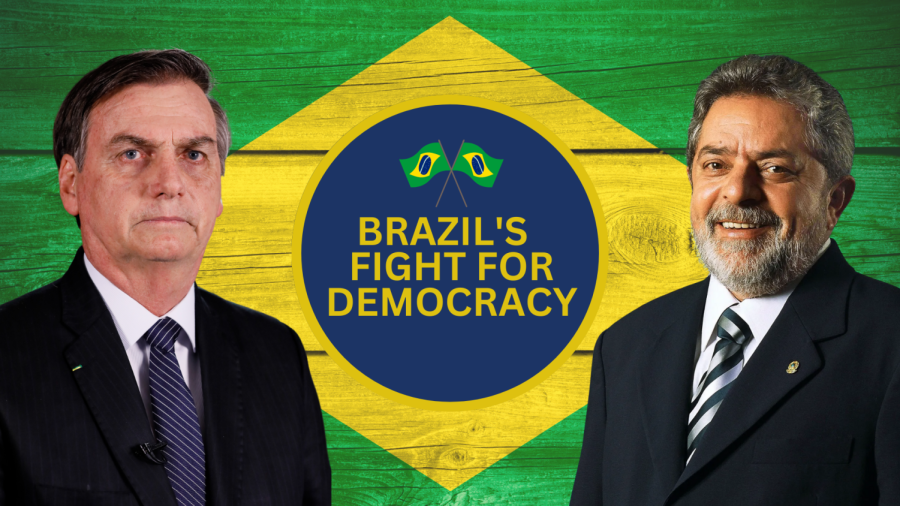Democracy in peril: Déjà-vu in Brazil
Brazil’s presidential election was a battle between two polarizing candidates that could fundamentally alter the core of the nation and its political agenda worldwide.
Déjà-vu. Already seen. A phenomena much of the world felt on January 8.
Just two years after America’s January 6 capitol raid, Brazil took its turn in the spotlight with a capitol raid of its own, seeing election deniers draped in patriotic flags illegally enter government offices.
What happened
Brazil’s current republic, since its inception in the 1980s, has been racked with instability, with rates of democratic approval being among Latin America’s lowest.
Corruption has only worsened this trend, as operation “Car Wash,” an investigation uncovering the biggest corruption scandal in Brazilian (and Latin American) history, resulted in the impeachment of incumbent president Dilma Rousseff in 2016.
“Rousseff was impeached for ‘administrative misconduct.’ In the next election, the right wing took over,” said Mike Liu (‘25).
The right saw victory in Brazil’s 2018 presidential election, with Jair Bolsonaro becoming president of Latin America’s largest country. Come election season in 2022, however, Bolsonaro, who had already been accused of being a threat to Brazilian democracy, began pushing election denial.
“If [voting with computers] continues, they’re going to have problems, because one side, which is [Bolsonaro’s] side, may not accept the result,” said Bolsonaro in an address three months before the election.
Commentators pointed out parallels between this rhetoric and Trump’s frequent denunciation of mail-in ballots. The second round of elections in late October ended with Bolsonaro’s defeat, and the reinstatement of the Workers Party – the same party that Rousseff campaigned under – through president-elect Luiz Inàcio Lula da Silva.
“Bolsonaro promoted concerns of voter fraud during the election, and he refused to admit defeat,” said Liu.
Following the elections, election-denying protests exploded in cities across Brazil in support of Bolsonaro.
“Protests began shortly after Lula won; there were protester roadblocks on hundreds of highways, an attempted trucker strike, and protesters remained in front of Brazil’s army headquarters, refusing to leave,” said Liu.
These protests culminated in the January 8 capitol raid, damaging relics, starting fires, and initiating altercations with police in Brazil’s congressional offices.
Hundreds of protestors have been captured by police, but the damage has been done.
What this means for Brazilian democracy
Bolsonaro publicly denounced the raid, but commentators found his remarks disingenuous, as he continues to promote accusations of election fraud, ultimately fueling the actions of the capitol raiders.
“Refusing to concede defeat in the election but then not taking responsibility for the protests is really hypocritical,” said Akarsh Singh (‘25).
Incumbent president Lula sees the attack as a threat to Brazilian democracy, responding to it with condemnation, and a wave of 1,200 arrests and detainments. Further legal action will follow the current investigation.
Going forward, experts hold that the future for Brazil may mirror that of America’s following January 6th, 2021, citing similarities between the two countries’ political climates.
“The Brazilians definitely took influence from it. The first thing I thought when I heard about it was that it was a ‘January 6 type of thing,’” said Liu.
Your donation will support the student journalists in the AVJournalism program. Your contribution will allow us to purchase equipment and cover our annual website hosting costs.


R A • Jan 25, 2023 at 7:31 pm
Great Article! I love the parallels you drew. Your depth of intellect is admirable. Looking forward to your future!